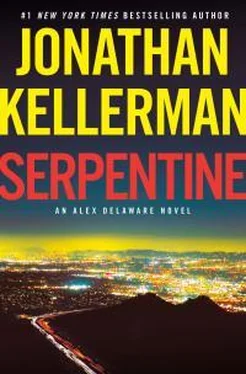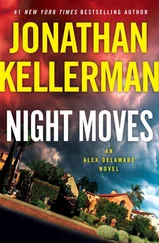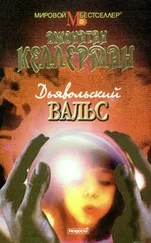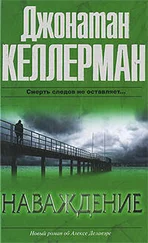He pulled to the curb on Western just past Franklin. “You drive and I’ll play with the databases.”
For years, he’d been violating protocol by conducting police business in the Seville, but never had he relinquished the wheel of an official vehicle.
I said, “You’re off the grid so it’s legit?”
“Can’t imagine it would be,” he said. “You can move the seat.”
—
Property tax rolls showed Winifred Gaines divvying to the county for a single-family residence on Los Robles Avenue in San Marino. A DMV check revealed an eighty-eight-year-old with an active driver’s license and a fifteen-year-old Mercedes 500 living at the address.
I said, “Not far from the stables in Pasadena.”
He scrolled through a map. “Not far from Huntington Gardens plus a nice car. Maybe another one with a butler.”
The reverse directory kicked up Winifred Gaines’s landline.
I said, “One advantage of dealing with mature folk.”
“Always looking on the bright side, huh?” Five rings sounded before a strong female voice said, “Hello?”
“Ms. Gaines?”
“Who’s this?”
“Lieutenant Sturgis of the Los Angeles Police Department.”
“This better not be one of those scams.”
“It’s about Arlette Des Barres, ma’am. If you remember—”
“I remember just fine. If you’re some kind of reporter doing one of those retrospectives, forget it.”
“I’m not, ma’am. Feel free to check me out. Lieutenant Milo B. Sturgis—”
“One of my nephews is a deputy police chief in Philadelphia, he’s always ma’am this, ma’am that. The only other people who ma’am that much are Filipino caregivers. Sir, this, ma’am, that. Nice people, well trained and well bred. A couple of them took care of my mother and she lasted to a hundred and four. What do you want to know about that poor woman? The fools who investigated the first time certainly weren’t interested in what I had to say.”
“Forest rangers?”
“You bet,” said Winifred Gaines. “Bermuda shorts and funny hats.”
“Well, I certainly am interested.”
“You’ve got something on him posthumously?”
“Who?”
“That dissolute husband of hers.”
“Not exactly.”
“Then why bother?”
“Is there any way we can meet to discuss it, ma’am?”
“Forget that.”
“Just briefly?”
“You are persistent—you’d better not be a reporter.”
“Feel free to call West L.A. Division and—”
“And be put on hold? I don’t think so, sir.”
“Ma’am—”
“Can’t stand to hear a grown man cry, tell you what,” said Winifred Gaines. “I was planning to have a nice quiet alone dinner at four thirty. If you can make it by then, fine.”
Hour and twenty minutes’ grace time.
Milo said, “Four thirty it is. Where?”
“San Marino Fish Market on Huntington Drive. You show up with a badge that didn’t come out of the Cracker Jack box, I’ll talk to you. And it’s not Ms., it’s Mrs.”
Click.
Milo said, “Her mother made a hundred and four. Maybe what my aunt Agnes called ‘too mean to die.’ ” He looked up the restaurant. “Looks pretty good.”
“Want the reins back?”
“Nah, you’re doing great with the oversteer. Drop yourself at home, plenty of time for me to make it back on time.”
I said, “You’re kidding.”
“About what?”
“I miss the charm-fest and suffer informatus interruptus?”
“That’s a thing?”
“It should be.”
—
He got back behind the wheel, pulled a three-pointer on Western, and returned to Los Feliz Boulevard. Two miles past the turnoff to Ellie Barker’s house was an on-ramp to the I-5, a bipolar highway. This afternoon, the phase was acute depression: miles of vehicles bunched up due to a capsized produce truck. Severe dent in the city’s cabbage supply.
That finally surrendered to eight miles of overcompensating speed on the 134 E followed by a commuter clot on the 210.
Freeways. I thought of something an econ prof had said back in college. No such thing as free.
When we landed on the elegant streets of San Marino, an hour and ten minutes had passed.
Milo said, “Time to spare,” but broke some speed limits anyway. Drumming the wheel, then the dash, then back to the wheel. The edginess that comes when he tries to convince himself something’s going to break.
CHAPTER 22
San Marino Fish Market was a sparkling storefront on a busy intersection. The city’s genteel with an older demographic, and that shaped the driving. Steady but civilized traffic created a constant low thunder.
Plenty of free parking was available near the entrance. Milo slid in next to a chocolate-brown Mercedes 500 with a miniature horseshoe hanging from the rearview mirror. Chocolate-colored cowgirl hat on the backseat. He rubbed his face, like washing without water. Edginess kicked up several notches.
Inside the restaurant were four round tables covered in white butcher paper and backed by a small refrigerated case featuring treasures from the briny. On the wall was what you’d expect in an old-school seafood joint: coiled ropes and nets, wood-and-brass captain’s wheels, a deep-sea diver mask, an illustrated chart featuring sketches of finned and shelled creatures.
Three tables were occupied by groups of white-haired people. The one closest to the door was set with three chairs, one of them filled amply by a large, poodle-coiffed woman wearing a blue denim, pearl-snap western shirt. Diet Coke and a basket of sourdough in front of her. Jaws working on the bread.
Milo said, “Mrs. Gaines?”
She chewed some more then swallowed, all the while studying us. “Brilliant deduction, you must be a detective. Who’s this?”
“Alex Delaware.”
“My son’s named Alex. He’s an actuary. I ordered for myself, it’s probably too early for you.”
“We’re fine.” He began to sit down.
“Uh-uh, at the counter,” said Winifred Gaines, pointing. “You pick out your victim, they cook it and bring it to you.”
“The fish are live?”
“No, dead. Like your victims.”
—
When we got back to the table, Winifred Gaines said, “What did you order?”
Milo said, “Shrimp-crab combo with fries, grilled halibut and fries for him.”
“Grilled. That’s why he’s skinny and we’re not. I got the same as you. Don’t read too much into it.”
A young, smiling waitress brought Milo’s iced coffee and my water and said, “More Diet Coke, Mrs. Gaines?”
“Sure.” Glancing at me. “Water? Tasteless. Way too much virtue, Slim. So what do you want to know about poor Arlette and why after all these years?”
“We’re looking into a thirty-six-year-old murder that may or may not be related to her.”
“That’s around the same time as Arlette.”
“One year after.”
“Someone else was taken in by his charms?”
“Dr. Des Barres?”
“That’s who we’re talking about, right?”
“You didn’t like him.”
“I judge people by how they treat animals. When he thought no one was watching, he kicked his mounts way too hard. One day, Robert the Bruce—my biggest, strongest stallion—got fed up and gave him a good rock and roll, nearly threw him. Tony was lucky he didn’t get brained.”
“He called himself Tony.”
“Everyone did.”
“He’s got a son named Tony.”
“That one was called Junior. Handsome kid, very bright. They both were, there were two sons. The little girl was much younger. Quiet. They all deserved better than Tony.”
“Not a great dad.”
Winifred Gaines snorted. Hard not to hear it as equine.
Читать дальше












